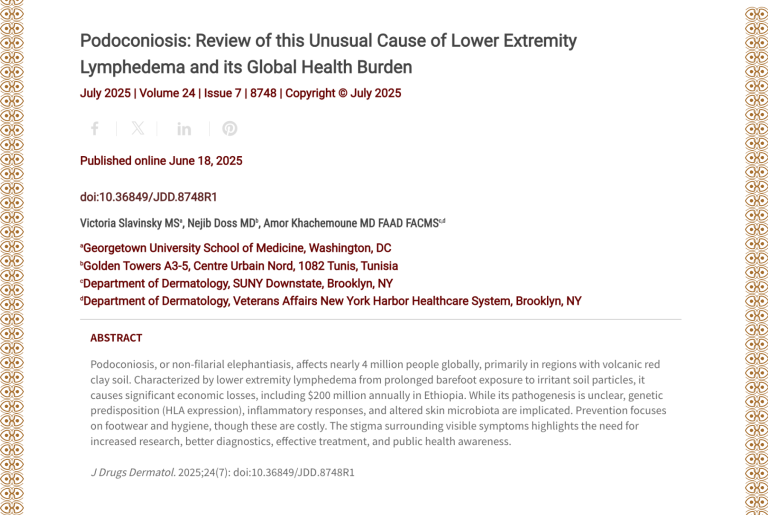
July Article Spotlight
In parts of the world where red clay soil coats the ground, podoconiosis—non-filarial elephantiasis—continues to devastate lives. This neglected tropical disease affects nearly 4 million people globally and causes debilitating lower extremity lymphedema through chronic barefoot exposure to mineral-rich volcanic soils. Ethiopia alone loses an estimated $200 million annually in productivity to this condition, yet awareness among clinicians remains low.
Though its precise pathogenesis is still being unraveled, a growing body of evidence points to a complex interplay of genetic predisposition, inflammatory processes, and disrupted skin microbiota.
The physical and social burden of podoconiosis is compounded by stigma—often isolating patients from their communities and healthcare systems. For dermatologists, this is a call to expand our lens beyond traditional borders and advocate for greater research funding, improved diagnostics, accessible treatment options, and global public health education.
How much do you know about this entirely preventable yet profoundly life-altering skin disease? It’s time to look closer.






